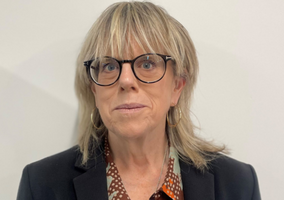Just as civil society emerges ever more obviously as the critical sector in the country’s recovery, its job gets (even) harder.
The uniqueness of charities – that they are the most values-driven sector of the economy and independent of the state – is consistently weaponised against them. And that makes leadership in the sector extraordinarily challenging.
You might think, as a former charity leader, I’m jaded. I’m not, but fair assumption. However, it’s not only me thinking this.
I’ve recently joined the expert panel of risk advisory firm River Effra, which works with all sectors, including charities. Colleagues there are convinced that the complexities of charity leadership are unmatched elsewhere.
I’ve met very few charity CEOs who view the world from the peak of the moral high ground. But they and their organisations are treated as though they do. Both externally and internally, the high standards that leaders set for themselves mean that anyone who thinks they’re in the wrong will call them out for failing to live up to the ideal.
This isn’t unfair. It’s the job. But it takes a heavy toll, and that’s a risk for the sector itself.
Managing risks
I’ve been recording a podcast, interviewing charity leaders about their personal strategies and tactics for handling these challenges. After recording the final episode, my co-host, River Effra CEO George Hutchinson, said: “I can see why people hesitate to apply for these roles, yet if they can actively manage the risks, understand the context, then it still remains incredibly rewarding and meaningful.”
We spoke to people about the burden of cutting back on services when demand is rising and income is shrinking; the pressure when critics publicly slate you and your organisation; the culture risks when internal activism tips over into division and anger; the complexities of leading through change again and again; and the challenges of charity governance when these risks materialise, either singly or – usually – together.
I already knew the best charity CEOs are hugely impressive. In these interviews, their resilience, determination to be open to scrutiny despite the risks, and their expertise and passion are extraordinary.
Sympathy for leaders
In a sector where people at all levels go the extra mile every day, it’s impossible for leaders to argue that they deserve special sympathy. But I’ll argue it for them. When risks materialise, trustees should be intentional about their response. They must acknowledge the pressure on the CEO and provide support: not be tempted to step into management, but visibly acknowledge their ultimate accountability and state that the choices being made are rooted in values, purpose and strategy.
If charity leaders face isolation on top of the other risks, I fear that George’s words will come true and the top job will get harder to fill. Anecdotally, it’s already happening, particularly in organisations that face the worst income challenges alongside the most intense demand and controversy. That vicious triangle of cutbacks, acute need and a polarised cause is frightening.
If that’s where your organisation sits, you probably can’t change it. However, as we heard, the best leaders accept the landscape and navigate their way through it. What they need is understanding and backing.
The White Water Leadership podcast drops on Spotify and all usual platforms weekly from 18 November.












